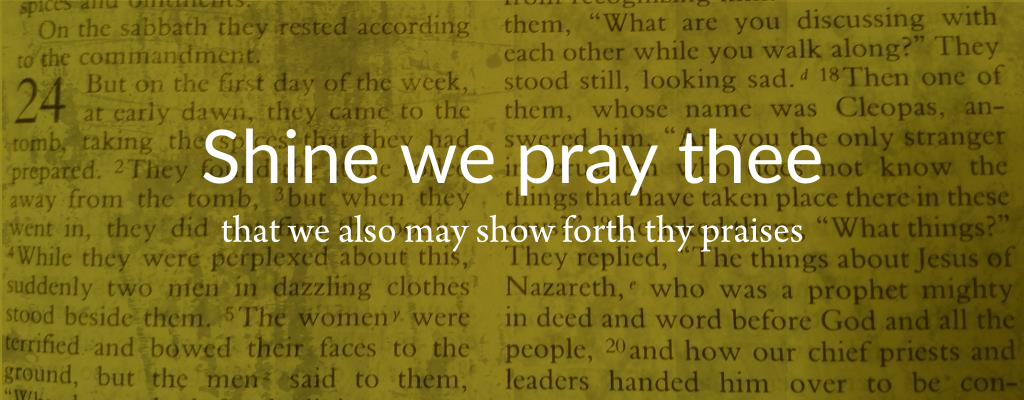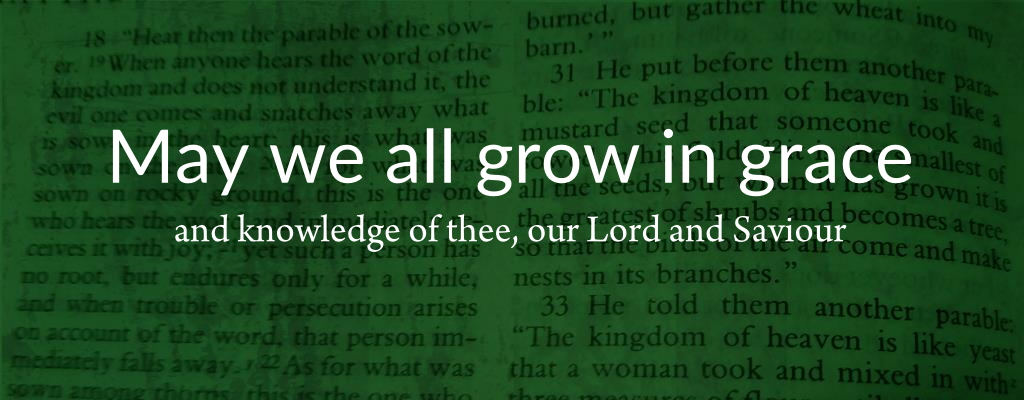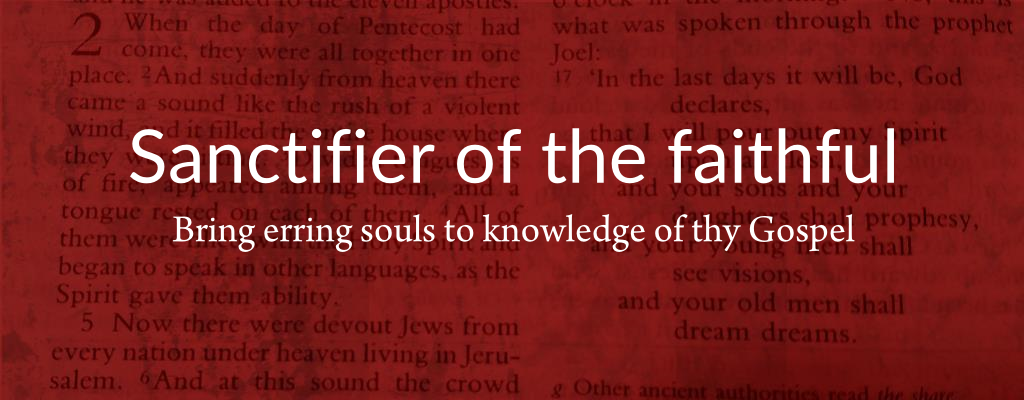News and Articles from the Prayer Book Society
-
When people see the Prayer Book Society from the outside, they see its goals either as being regressive, if they strongly oppose them and want to use a negative description, or at the very least as seeking to take the Church back to the past. There is only one direction the Prayer Book Society truly seeks to take people, however, and that is up to heaven.
The goals of the Prayer Book Society can only be viewed as going backwards in any capacity if we say that we are in error now. The primary goal of the Society is to contribute to the evangelization of Canada. The second goal is to promote orthodox Christian beliefs in the traditional Anglican style. Traditional here does not so much mean, “using exclusively the traditional language of the BCP” as it does using the traditional theological techniques of Anglicanism: first we turn to the Holy Scripture, then to the writings of the Fathers and finally to the Anglican Formularies themselves.
The Book of Common Prayer is one of those formularies, is Biblical and is Patristic. Should it be any surprise that it would be held up as a book which for more than three hundred years has helped Anglicans to maintain right Christian belief? Surely in this modern age of increasingly secular relativism, and where secular society is more and more finding ways to impose its beliefs on the Church, the rock of the 1662 Book of Common Prayer would be held up as a tool for right belief?
In the 400s, St Vincent of Lerins wrote in the Vincentian Canon that when, “some novel contagion try to infect the whole Church,” such as for instance a broad willingness to proceed in doctrinal debates apart from Scripture instead with reference to prevailing secular ideas of justice, St Vincent says we must, “take care to cleave to antiquity, which cannot now be led astray by any deceit of novelty.” The 1662 Book of Common Prayer will not be swayed by new arguments because it is unchangeable as a historical publication. It is always useful for the testing of new ideas because it cannot be swayed by emotional arguments.
Since God first spoke to Adam, there have been those who have sought to distort God’s word and deceive his children. Our age is no different. We must take care to recognize that the struggles of the Church in this age are no different than the struggles of the Church in any previous age. We must also therefore recognize that our goals remain the same: the salvation of souls and the reconciliation of our fallen humanity to our creator. The Book of Common Prayer is a useful measure by which we know Christian orthodoxy can be promoted against the wild currents of change in which we find ourselves, and more than ever is a signpost for the narrow path Christ called us to follow.





Leave a Comment